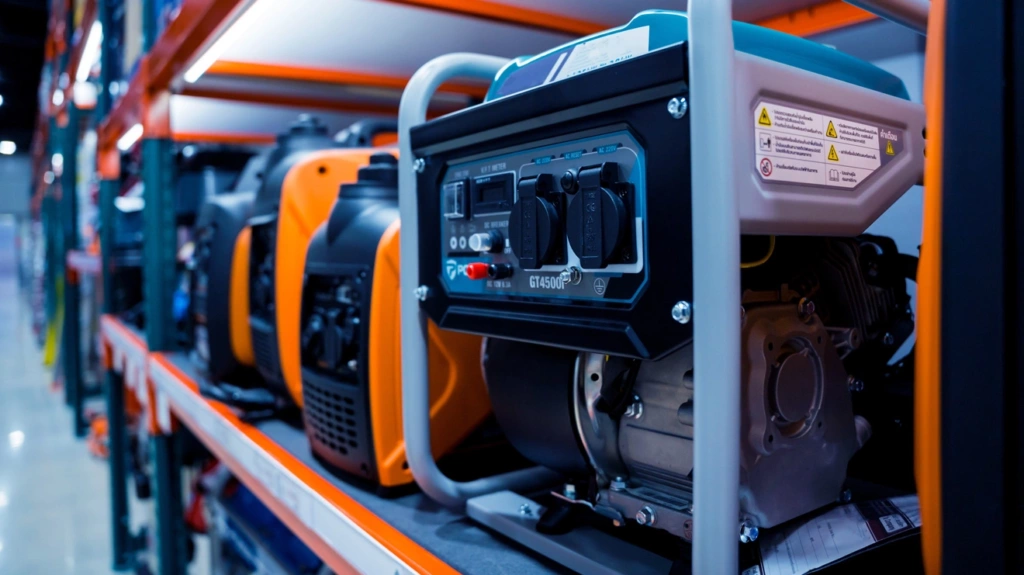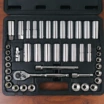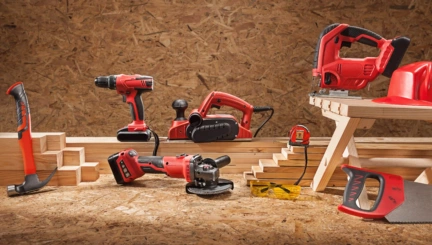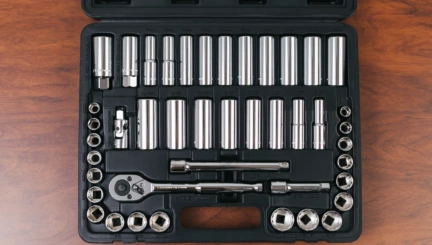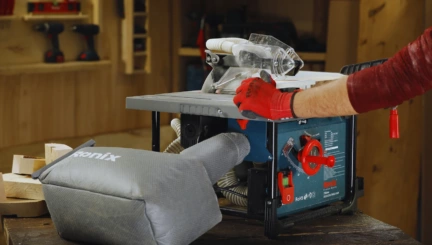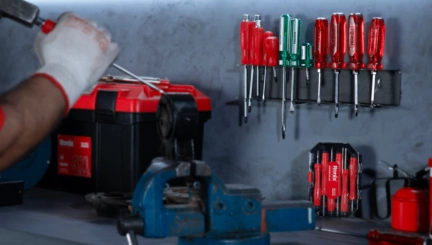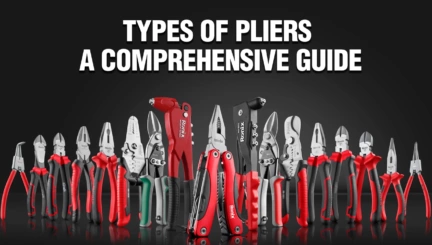- 11min
- 8034
- 0
When there’s a hurricane outside and you can’t go out, things are already tough. Now imagine the power going out suddenly during a hurricane! no TV, no cell phone, and no way to read a book. And these are just activities for fun. Imagine someone relying on an oxygen machine or other critical medical device. This is where a backup source of power becomes essential, and portable generators are the best options to have.
But this is not the only purpose for which these generators are made. Of course, portable generators have other applications too. They’re useful anywhere you’re out of reach of an outlet, like camping, construction sites, and similar places.
Nowadays, with everyone thinking about upcoming situations, we all need a generator in our lives. But choosing one requires a lot of thought because there are different types of portable generators out there with different features. Deciding which one to choose isn’t easy. Let’s take a deeper look at their types and figure out which one will suit your needs best.
Tips for Choosing a Portable Generator
Before choosing the first model that comes up in a Google search or heading to the store to buy whatever model a supplier recommends, it’s essential to do your research. Having a clear understanding of what type of portable generator you need and what specific features it should have is crucial to ensure it meets your requirements.
How to Determine the Power You Need for a Generator
The generator you choose should be able to handle the devices and equipment you plan to power. For example, if you need a generator for home use, calculate the total wattage of all the home appliances and devices you intend to use.
Before choosing a generator, it is essential to determine your power needs.
Fuel Matters: Choose the Right Type for Your Generator!
When picking a special type of portable generator for your home or business, fuel type is an important thing to think about. Don’t fall into the trap of thinking all fuels are the same. they’re not! Fuel types are different in price, availability, and storage requirements, depending on your location. Make the smart choice to ensure your generator runs well when you need it most.
Most Common Portable Generator Fuel Types: What’s Your Power Pick?
Diesel, gasoline, propane, or natural gas! what’s your pick? These are the most common fuels for portable generators, and each has its own benefits. Don’t guess! Learn the differences, choose the right fuel, and get your generator ready to power your home or business like a professional!

Is Generator Noise Level Important?
It depends on your needs! If you’re using a special type of portable generator for camping or during a city blackout, noise level might matter to you. Generators with a noise rating of 60 dB or lower are much quieter and better for silent operation.
Think about your project. do you need a quiet generator, or is noise not a big deal? Make sure to choose the right one for your needs!
Don’t Overlook Runtime!
A generator’s runtime shows how long it can run on a full tank of fuel. If you need a generator for extended use, like during a power outage, pick one with a longer runtime.
This means fewer refueling stops and uninterrupted power. Dual-fuel generators are a great choice—they can switch between two fuels, giving you even more runtime!
Safety Always Comes First!
I’ve always said it, and I’ll say it again: safety comes first. Tools and equipment should make your work easier, not dangerous. Before buying any tool, always check its safety features.
When it comes to generators, look for features that add extra protection, like:
- Low oil shut-off: Automatically turns off the generator to prevent engine damage.
- Overload protection: Protects your gadgets from damage during use.
- Carbon monoxide sensors: Modern generators can shut down if CO levels become unsafe.
Choose a generator that keeps you safe while powering your projects!
What’s Your Budget?
One of the first things to think about when buying a generator is the price. But don’t just grab the first one you see!
Consider how often you’ll use it:
- Do you need it for a one-time use or occasional backup?
- Or will it be something you use every day?
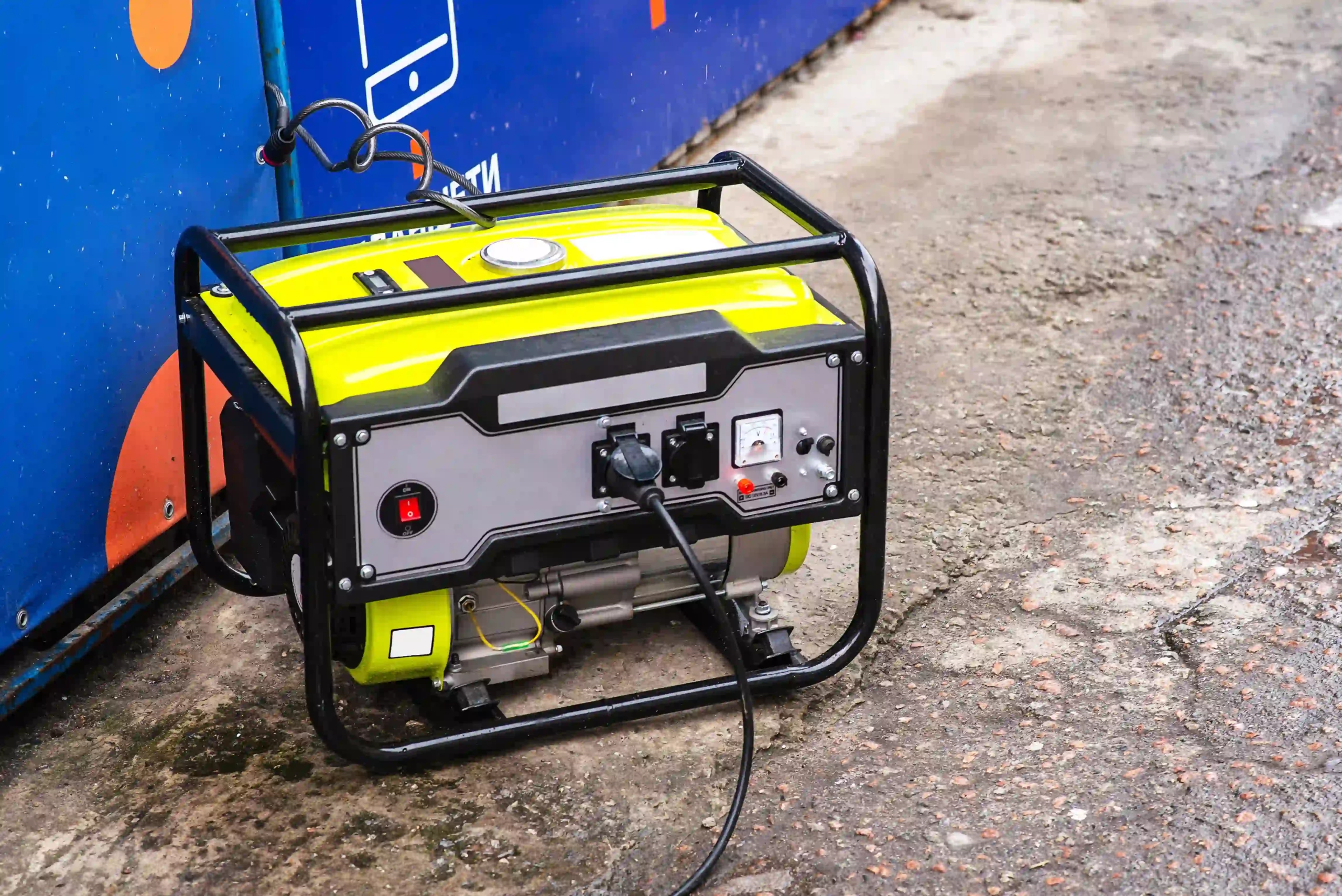
Figure out the key features you need, then find a generator that fits your budget and meets your needs. Smart spending is the way to go!
Should You Care About Reviews and Comments?
Absolutely! Suppliers might exaggerate the features of their products, but real users don’t. Checking reviews and comments from people who’ve already used the generator can give you honest insights and help you make the right choice.
Don’t skip this step—it can save you from disappointment and ensure you pick a generator that works for you!
Warranty and Support: A Smart Investment
A strong warranty and good support can make all the difference when choosing a generator. If the supplier offers a warranty and after-sale support, you’ll have peace of mind knowing you’re not on your own.
If any issues come up, the company will be there to help and support you. It’s a sign that they stand behind their product and value their customers. Always look for this before you buy!

Time to Explore Different Types of Portable Generators!
Now that you know what to consider before buying a portable generator, it’s time to get familiar with their different types. There are many options, each with unique purposes and benefits.
1- Diesel Generators: The Powerhouse Choice!
Diesel is the most popular and widely used fuel, especially for heavy-duty commercial generators. let’s check it out:
Why it’s a good choice:
- Diesel generators are perfect for long-term use.
- They’re cost-effective and user-friendly.
watch out for:
- Just a heads up! diesel generators can be louder.
- Diesel may not perform as well in freezing temperatures.
Best For: Construction teams working in cold weather on long-term projects.
2- Gasoline Generators: The Classic Choice!
Gasoline is one of the easiest fuel sources to find, making it a perfect choice for many generator users. Here’s what you should know:
Why it’s a good choice:
- Gasoline generators are easy to fuel and operate.
- Gasoline is convenient, though it can be more expensive than other fuel options, so consider that.
Watch out for:
- Their fuel shelf life is short (about 3 to 6 months).
- They’re noisy and produce fumes.
Gasoline generators (Ronix RH-4708) are simple and popular, but their cost can add up! make sure they fit your needs!
Best for: Construction sites on a budget with short-term projects.

3- Propane Generators: A Quiet But Challenging Option!
Propane generators aren’t the easiest to set up, but they have some great benefits. Here’s what you should know:
Why it’s a good choice:
- They run quietly, so if noise is a concern, propane is a good choice.
- propane lasts forever without going bad
Watch out for:
- Propane generators have a more complex fuel system, so they can be harder for beginners.
- Getting a propane generator set up can be expensive.
Best For: Home backup power, eco-conscious users, RVs
4- Natural Gas Generators: The Green Choice!
Natural gas is often used to power entire towns, from homes to schools and businesses. Here’s why it’s such a popular fuel for generators:
Why it’s a good choice:
- No refueling needed—runs as long as the gas line works!
- Natural gas is cleaner than other fuels, so it’s a good choice if you care about the planet.
Watch out for:
- Not truly portable since it needs a gas connection.
Natural gas is reliable, convenient, and better for the planet. No wonder it’s a favorite for many!
Best For: Permanent home backup power

5- Solar Generators: Power from the Sun!
If you’re a camper or need special types of portable generators for outdoor use, solar generators are one of the best choices you can make! They offer a ton of benefits but also have a few downsides to consider.
Why it’s a great choice:
· You can easily recharge them using sunlight! how cool is that?
· They’re super quiet and produce zero fumes or CO, making them perfect for outdoor adventures.
What to watch out for:
· They’re not ideal for emergency use, so plan accordingly.
· Solar generators can be quite expensive.
Best for: Camping, powering small gadgets, eco-conscious adventurers

6- Hydrogen Generators: The Future of Power!
Hydrogen generators are quickly becoming the future of power, and it’s no surprise why! More people and industries are making the switch to this revolutionary fuel type. These tough, eco-friendly generators convert water into hydrogen gas using electrolysis, offering a cleaner, smarter energy solution.
why it’s a good choice:
- Hydrogen generators are incredibly eco-friendly, delivering more energy per pound than any other fuel!
- They can cut your electricity costs by 50% or more in the long run—imagine the savings!
watch out for:
- They’re not easy to find.
- They come with an expensive price tag.
- Hydrogen is highly flammable, so it requires careful storage to avoid any risk of explosions.
Best for: Eco-friendly construction teams looking to cut down on electricity cost
7- Inverter Generators: Power Packed in a Portable Form!
My personal pick is the inverter generator. In my opinion, it’s one of the best types of portable generators out there! These generators deliver cleaner, quieter operations, making them perfect for charging sensitive electronics like laptops and phones.
why it’s a good choice:
- Inverter generators run longer on less fuel, which is a huge win for efficiency!
- They offer quiet operation, so you can enjoy peace and quiet while powering your devices.
watch out for:
- They can be more expensive than other models.
- If you’re looking for a model with power, an inverter generator might let you down.
Best for: Camping trips, powering small electronics

8- Battery-Powered Generators: Silent & Simple!
Rechargeable battery generators are quickly becoming a popular choice, and it’s easy to understand why! More people are switching to these clean and efficient power sources. These large, eco-friendly batteries store energy and can charge electronics or power small devices.
Why it’s a good choice:
• They are very quiet! great for peaceful surroundings.
• They are good for the environment! no exhaust or fumes.
• Easy to use with no messy fuel.
Watch out for:
• Not the best for heavy-duty power needs.
• Charging can take a long time.
• Not suitable for big appliances or machines.
best for: charging phones, laptops, and travel
9- Dual-Fuel Generators: Double the Fuel, Double the Power!
A dual-fuel generator gives you a reliable backup plan by letting you switch between two fuel sources! usually gasoline and propane. whenever you need.
why it’s a good choice:
you can use whatever fuel you have on hand!
If one fuel runs out, you’ve got the other to keep going.
watch out for:
- obviously it’s more expensive than single-fuel generators.
- it’s a little bit more complicated to work with.
Best For: Emergency backup when you need reliable, extended power options
Read More: Best Dual-Fuel Generators
10- Tri-Fuel Generators (Gas + Propane + Natural Gas): The Best Backup!
Looking for a generator that can adapt to any situation? The tri-fuel generators are just for you. they Can run on gas, propane, or natural gas—your choice!
why it’s a good choice:
- You’re not stuck with just one fuel; if one runs out, you can switch to the others.
- It’s Perfect for long-term emergencies.
Watch Out For:
- Obviously higher cost.
- A little bit more complex to operate.
Best For: Disaster preparedness

You now have all the information you need about different types of portable generators. If you’re looking for the Best Portable Generators , be sure to check out our other article, where we’ve identified the best options available on the market.
Don’t wait! Grab a pen, list your needs, pick a generator, and start your project today!
FAQ
How Do I Know What Portable Generator Is Right for Me?
To choose the right portable generator, consider factors such as fuel type, runtime, noise level, and safety features.
What is a good wattage for a portable generator?
for home use, 3,000-5,000 watts is ideal; for smaller electronics or camping, 2,000-3,000 watts works. Larger appliances may need 6,000 watts or more.

Ronix
5 January 2025
